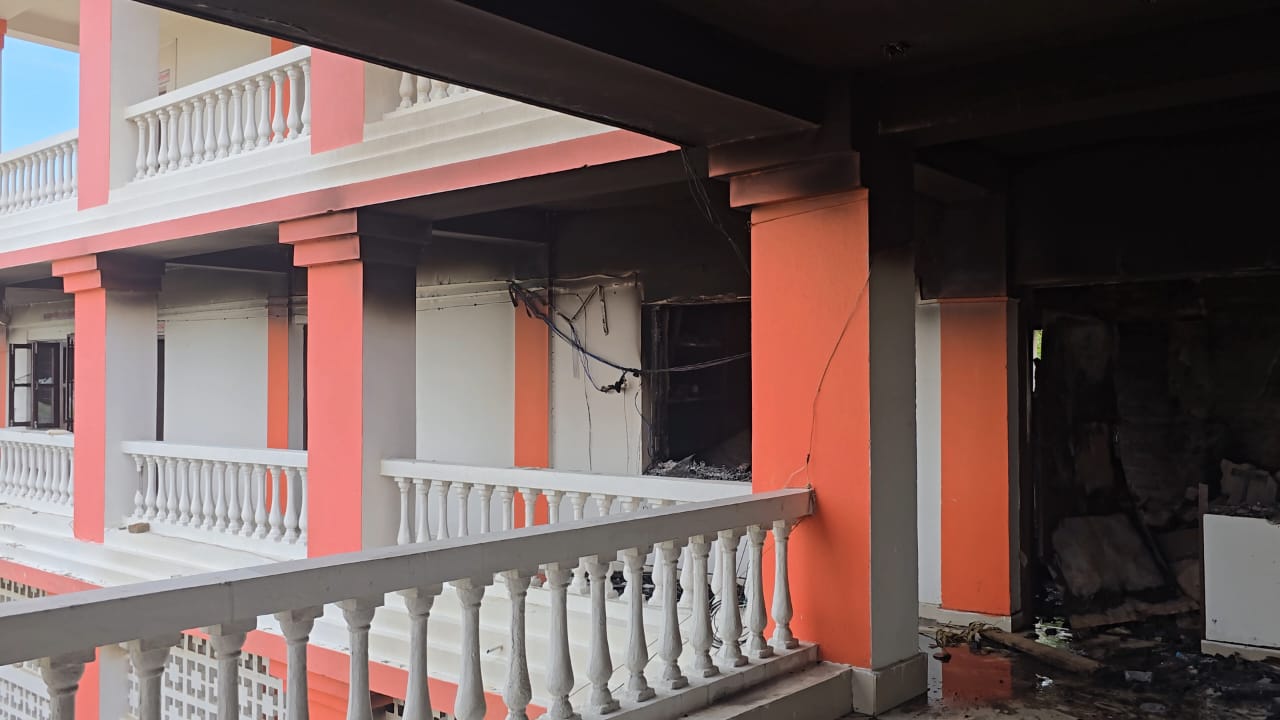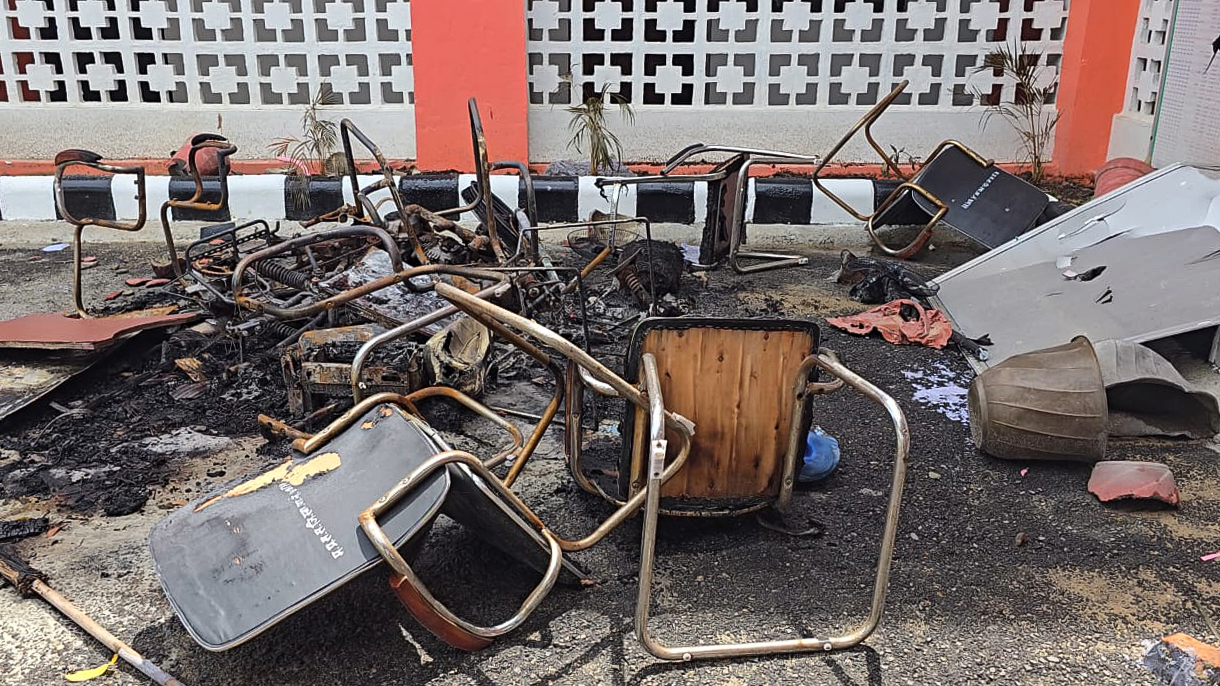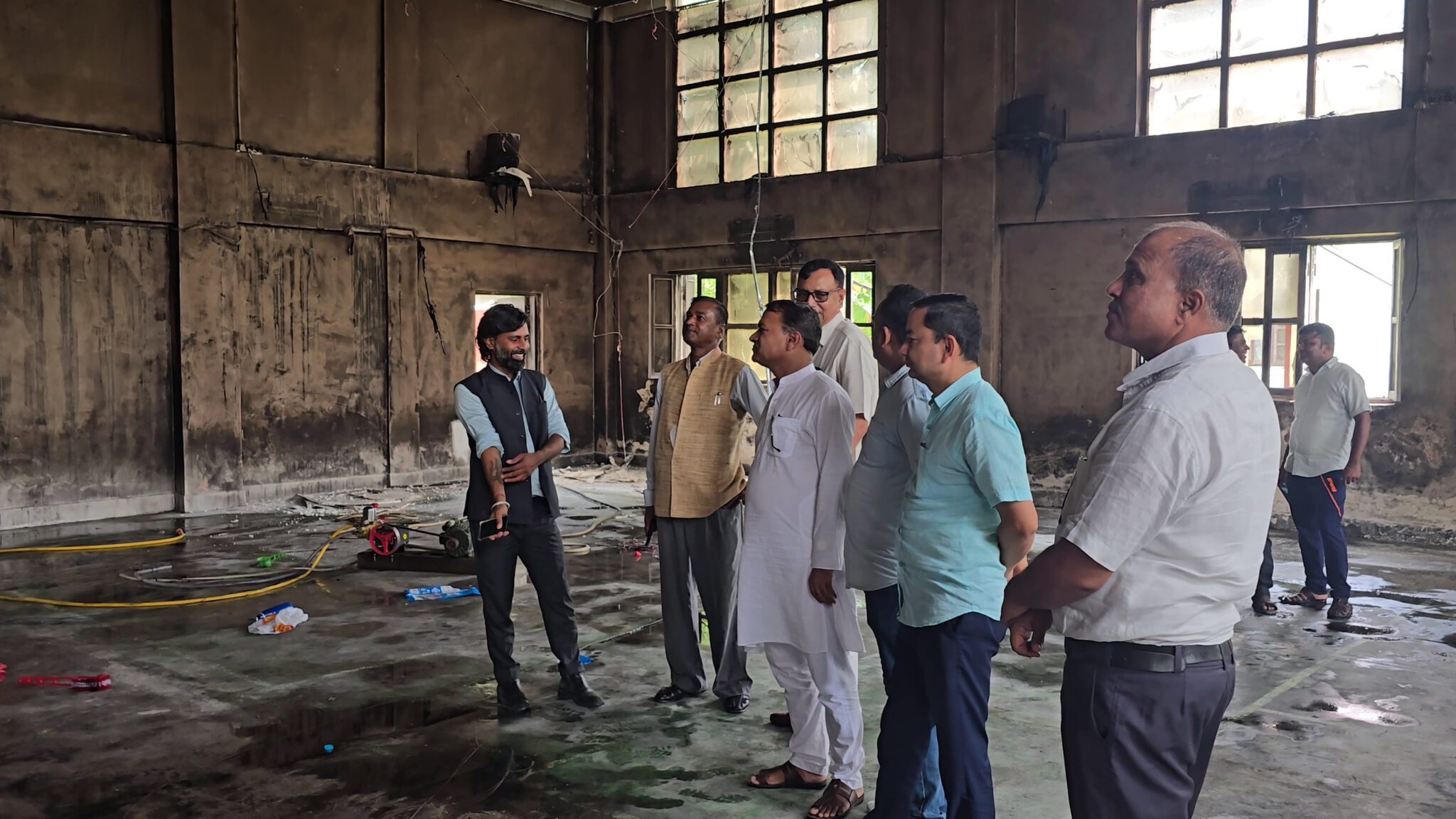

BIRENDRA RAMAN
JANAKPUR: The impact of the dissolution of the Federal Parliament’s House of Representatives following the Gen Z protest has also fallen upon Madhes Province. The activity of the Provincial Assembly has also become slow.
The Madhes Provincial Assembly meeting has only been held three times since the Gen Z protest: on September 23, 24, and October 14. In the first meeting, the parties offered well wishes for the Sixth Session, and the third meeting was called for the then-Chief Minister Satish Kumar Singh to seek a vote of confidence. However, he resigned after realizing he would not receive the vote of confidence. After that, the Provincial Assembly meeting has been called again on November 8 for the new Chief Minister to seek a vote of confidence.
After the government announced the date for the House of Representatives election, political parties appear busy there, and they do not seem to be paying attention to the Provincial Assembly. The direct effect on the dynamism of the Provincial Assembly is also due to a decrease in morale among the political parties following the movement. The second term of the Madhes Provincial Assembly is currently running. The main duties of the Provincial Assembly are to serve as a venue for passing the budget, formulating laws, and discussing matters of public concern, and there has been a slowdown in this since the recent Gen Z protest.
It’s not just the Provincial Assembly; the morale of some Provincial Assembly members has also dropped psychologically after their homes were set on fire. The second term of the Madhes Provincial Assembly is currently running. During its first term, the Madhes Provincial Assembly passed 55 bills, while the Madrasa Education-related Bill was shelved and became inactive. In the second term, 22 bills have been registered so far, and one bill—designating the language for government work—was withdrawn by the government shortly after registration due to controversy. The Provincial Assembly currently has six bills. Of these, four are ready to be presented in the assembly, and two are with committees.

Provincial Assembly Secretary Basu Prasad Koirala said, “The Provincial Assembly had already gained momentum, but looking at it now, not much is visible. Nonetheless, we have held three assembly meetings, which is positive in itself, but there are problems, and we are gradually removing them.”
Following the arson attack on the house of Janata Samajwadi Party Nepal Chief Whip Ram Ashish Yadav during the movement, he claimed that the political morale he possessed had been diminished somewhere. Yadav commented that the interim government formed at the federal level has also begun an attack on federalism by interfering unnecessarily. He said, “The recent directive to interfere with the law made by the provincial government and reduce service facilities is an attack on federalism. This will not, in any way, strengthen federalism. The government’s responsibility is to conduct elections, but it is interfering unnecessarily and treating the province as a unit, not a government.”
Yadav alleged that the federal government is engaged in a game to weaken federalism and lead the country toward eliminating it. After the federal government recently issued a circular regarding expenditure reduction, the Provincial Assembly has not paid the salary of any personal secretary of the Provincial Assembly. Out of the 71 staff positions in the Provincial Assembly, about 25 are contractual employees. Secretary Koirala also stated that there are no staff members in the Madhes Provincial Assembly other than those listed in the official positions. Based on the federal circular, the salary and allowances of some employees in the Chief Whip’s Secretariat and the Speaker/Deputy Speaker’s Secretariat, as per the law made by the Provincial Assembly, have been withheld. Provincial Assembly members interpret this as an attack on federalism. The energy that Provincial Assembly members had during the first term of the Provincial Assembly has faded in the second term. Provincial Assembly members say that there has been a slowdown in lawmaking as well as in the operation of the Provincial Assembly. Ratneshwar Lal Goit, a Provincial Assembly member of the CPN (Unified Socialist), stated that the speed that should have been achieved was lessened due to the pattern of forming a government, giving support, and withdrawing support at the beginning of the second term.
He said, “The Provincial Assembly meeting could not be held because the Satish Singh government took the 30-day period after falling into the minority. We were involved in party unity, and although some slowdown is visible somewhere, the Provincial Assembly will gain a kind of momentum after the government secures a vote of confidence.”
Provincial Assembly members state that the responsibility of advancing the Provincial Assembly’s pace rests with the government, but the problems have arisen because the government is itself in crisis and caught in the tug-of-war between parties. In the second term, the first Chief Minister, Saroj Kumar Yadav, took a vote of confidence three times, and the subsequent Chief Minister, Satish Kumar Singh, took a vote of confidence one time. Since no party holds a majority in the Provincial Assembly and parties constantly move back and forth in government formation and self-interest, the stability of the government and the Provincial Assembly are both directly affected.
Serious damage to the provincial assembly
During the Gen Z protest, the Madhes Provincial Assembly itself became a target of the protestors. The building, which was converted from the former Education Office and Teachers’ Training Center building, houses the Provincial Assembly, the residences and offices of the Speaker and Deputy Speaker, and staff accommodation. The offices of the parliamentary parties and the subject-wise committee chairpersons are also located there. Everything was destroyed after the protestors set fire to the remaining buildings during the Gen Z protest, except for the residences of the Speaker, Deputy Speaker, and employees.
After the protestors set fire to offices, including the Singha Durbar in the capital, government offices and ministries in Madhes became targets. The protestors set fire to the Madhes Provincial Assembly after torching various other offices. Former Madhes Chief Minister Saroj Kumar Yadav says, “I wonder what kind of protestors they were; what kind of message did they try to send by setting fire to the very seat of federalism? Federalism was brought through a lot of effort; after setting fire to its very seat, I cannot understand if the protestors dislike federalism or if they set fire to it on a whim.”

The fire set by the protestors in the Provincial Assembly caused damage exceeding Rs 300 million. Secretary Basu Koirala stated that the damage to equipment inside the Provincial Assembly due to the fire set by the protestors was over Rs 10 million. The arson attack on vehicles and cars caused damage exceeding Rs 6 million. Similarly, the burning of office materials, computers, and furniture caused Rs 52 million in damage. The protestors set fire to the offices of the parties in the Provincial Assembly, subject-wise offices, most branches, and even the assembly hall. Madhes Provincial Assembly Secretary Basu Koirala stated that after the movement, the staff’s motivation to work has died. He mentioned that they do not come on time, and when they arrive, they spend time idly in the office because there is no proper place for them to sit.
Koirala said that due to the lack of necessary furniture for the office and places for employees to sit, they come and do minimal work. “Employees need a working environment, office space, and necessary materials. But there is a problem even in purchasing materials due to the complexity of the procurement process,” Koirala said. “We want to gradually acquire materials and bring the Provincial Assembly back on track.”
Speaker Ram Chandra Mandal also stated that the main problem is the lack of dynamism in the government itself. He said, “Since the government and the Provincial Assembly are intertwined, the problem has arisen because the government is focused on formation and taking a vote of confidence. There are some bills; we will move them forward in a few days.”
Minority provincial assembly
The Madhes Provincial Assembly has representation from a total of 10 parties. Out of 107 Provincial Assembly members in total, there are currently 104 Provincial Assembly members. Three Provincial Assembly members are suspended. The Madhes Provincial Assembly comprises CPN (UML) with 25 seats (one suspended), Nepali Congress with 22, JSP Nepal with 19 (one suspended), Janamat Party with 13, LSP with 9 (one suspended), Maoist Centre with 9, CPN (Unified Socialist) with 7, Rastriya Prajatantra Party with 1, Nagarik Unmukti Party with 1, and Nepal Sanghiye Samajwadi with 1, totaling 107 members.

Dipendra Thakur of the CPN (UML) was suspended after a corruption case was registered in the Special Court. Abhiram Sharma of the LSP was suspended after being sentenced to life imprisonment for the murder of Armed Police Force ASI Thaman Bik during the Madhes movement. Similarly, Saroj Singh Kushwaha of JSP Nepal was suspended after a corruption case was filed against him for taking a bribe from a consumer committee and commissioning substandard work.
Committees also slowed
Following the Gen Z protest, the various subject-wise committees in the Madhes Provincial Assembly have also slowed down. While the vehicles provided to the committee chairpersons were saved from the protestors’ target, their offices within the Madhes Provincial Assembly were destroyed. Secretary Koirala stated that a bill related to seeds in the Agriculture Committee was set on fire when the work of deliberation and report preparation was in its final stage. As a result of the arson, it has to be re-discussed and prepared by the committee.
Three bills are ready to be presented from the committee to the assembly: the Bill to Amend Some Acts Related to Rural Municipal and Municipal Assemblies, the Bill to Amend Some Acts Related to the Functions and Duties of the Policy Commission, and the Bill Related to Provincial Trade. Even though the Provincial Assembly is not in session and committees can generate their own business and hold regular meetings, the movement has slowed down the committees’ pace. Since the movement, only the Women, Children, and Social Justice Committee of the Madhesh Provincial Assembly has met. The meeting held on October 30 observed the damage to the provincial Education and Health Ministries. Other than this, no other committee has been able to meet.
The Provincial Assembly has seven committees, including the Finance and Planning Committee, Agriculture and Land Management Committee, Provincial Assembly Affairs Committee, Natural Resources and Environment Committee, Women, Children, and Social Justice Committee, Development Committee, and Public Accounts Committee.
Sharada Das Pahadi, Chairperson of the Natural Resources and Environment Committee, said, “We don’t have a building. We are forced to hold meetings elsewhere. Since committee members also attend when the Provincial Assembly is running regularly, and there is a problem with members coming from outside just for meetings, it has also created difficulty in convening meetings.” She added, “The government has changed. People have gone everywhere. There is no building; there is a kind of confusion about where to sit.”
She stated that while there was no problem holding meetings when all structures were present before the Gen Z protest, now the committee building itself is nonexistent.
Rupa Yadav, chairperson of the Social Justice Committee, also mentioned that the lack of necessary materials makes holding meetings difficult. “We don’t have our own building for meetings or furniture, but still, we use other rooms to hold meetings and monitored various ministries on November 2 and 3. There are many problems—where to sit? Where to discuss? There are many problems,” she said.